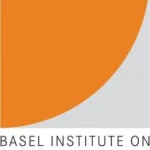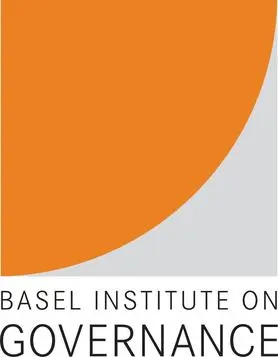
Basel Institute on Governance
About the Basel Institute on Governance
The Basel Institute on Governance is an independent non-profit organisation working across sectors to counter corruption and related financial crimes and to improve the quality of governance. Registered as a Swiss foundation with headquarters in Basel, the Institute works globally and maintains field operations around the world. The Basel Institute is an Associated Institute of the University of Basel.
The Basel Institute’s Green Corruption programme focuses on applying our in-house expertise and experience in relation to the prevention of corruption and the enforcement of anti- corruption and anti-money laundering standards to the environmental sector. The programme covers corruption and financial crime related to the illegal trade in wildlife, forestry and timber products, fish and mining.
Project: Empowering Malawi’s government agencies to control wildlife- related corruption by strengthening both prevention and enforcement approaches
Numerous government agencies tasked with natural resource/wildlife management suffer from the effects of corruption. This severely undermines their effectiveness and, in many instances, may serve as an important enabler of wildlife trafficking. Anti-corruption efforts around the world have highlighted the importance of corruption risk assessment and risk mitigation strategies to prevent and detect corruption risks within public institutions. The value of such mechanisms for preventing corruption in natural resource management has been highlighted in various reports.
The project addresses corruption in the wildlife and forestry sector in Malawi from a prevention and enforcement perspective. To prevent corruption from occurring, the project is working with the Anti-Corruption Bureau (ACB) to strengthen the internal risk management systems of the Department of National Parks and Wildlife (DNPW), the Department of Forestry (DoF) and the Malawi Police Service (MPS). Where corruption has already taken place, the project is supporting the ACB to drive forward investigations and prosecutions related to corruption in the wildlife and forestry sectors.
Assignment
The Research Assistant will support the project by helping to develop a better understanding of corruption risks and potential mitigation measures at relevant government agencies in Malawi. The Research Assistant will work collaboratively with the Senior Corruption Prevention Advisor to gather and analyse qualitative information about current corruption risks, with the objective of developing targeted corruption risk assessments. He/she will then assist in developing practical and implementable mitigations to reduce corruption risks through the implementation of effective systems of internal control and other relevant strategies.
The research assistant will also work closely with other Green Corruption team members based in Malawi and at headquarters. The need for international travel is not anticipated.
Activities and timeline
The activities are expected to start as soon as possible in January 2024 and continue until the end of June 2024. The exact timeline of the various tasks is to be defined by the Senior Corruption Prevention Advisor and will vary to tailor the needs of the already initiated and upcoming corruption risk assessments.
- Desk research:
- Use the internet and other open sources to gather data about corruption risks, policies and practices of wildlife and forestry agencies.
- Review existing rules, regulations and standard operating procedures relating to corruption prevention, detection, deterrence and correction.
- Review agency-specific documentation, including organisational structures, audits and evaluations, agency-specific corruption prevention plans, relevant internal and external assessments, practice guides, performance reports, etc.
- Data gathering:
- Facilitate interviews with relevant stakeholders, including locating contact information, assisting with scheduling and following up as needed.
- In collaboration with other team members, participate in semi-structured interviews (both in person and virtually) and apply data collection instruments to select participants.
- Document results of interviews through preparation of notes and editing electronically generated transcripts of recorded interviews, as necessary.
- Data analysis:
- Assist in the interpretation of results.
- Prepare, document and maintain schedules and summaries of results.
- Study and understand previous work on a process-focused corruption risk assessment and internal controls review in Malawi.
- Reporting:
- Provide inputs to drafts of reports and other documents.
- Participate in presentations to agencies (individual results) and public (anonymised findings) as needed.
- Communication:
- Participate in updates and discussions with team members via email, video-conferencing software or messaging software regarding activities, results and observations.
- Use automated processes (e.g. Google Calendar, Google Docs) as needed to facilitate team communication.
- As requested, provide input on draft documents.
- As requested, participate in internal briefings on progress, results and challenges.
Deliverables
Deliverables will include regular desk research synthesis, interview notes, summaries of policies and other documents, and open data research summaries.
Reporting
The consultant will report to the Environmental Crime Specialist and the Malawi Technical Lead of the Green Corruption programme.
Qualifications
- Bachelor in accounting, political science, risk management or related field including a strong understanding of anti-corruption concepts and mechanisms.
- Experience working as part of team, either in academia, government or the private sector.
- Experience in conducting or supporting semi-structured research interviews.
- Languages: fluency in English
- Excellent organisational, English presentation and writing skills.
- Experience with corruption risk assessments and working with government agencies or development organisations is an advantage.
- Understanding of government internal functioning in Malawi is an advantage.
NB: This is short-term full-time position based in Lilongwe, Malawi.
How to apply
Applications
Interested applicants should submit a CV, contact details of three professional references and a letter of motivation of not more than two pages, outlining: (i) their relevant experience for the assignment; (ii) the steps and activities they would undertake in order to execute the assignment; (iii) and any clarifications they would wish to seek from the Basel Institute prior to executing the assignment. All documents should be merged in a single PDF file.
Please submit applications to [email protected] no later than 18:00 CET on 10 January 2024. Only shortlisted candidates will be contacted.
Deadline: 10 Jan 2024

